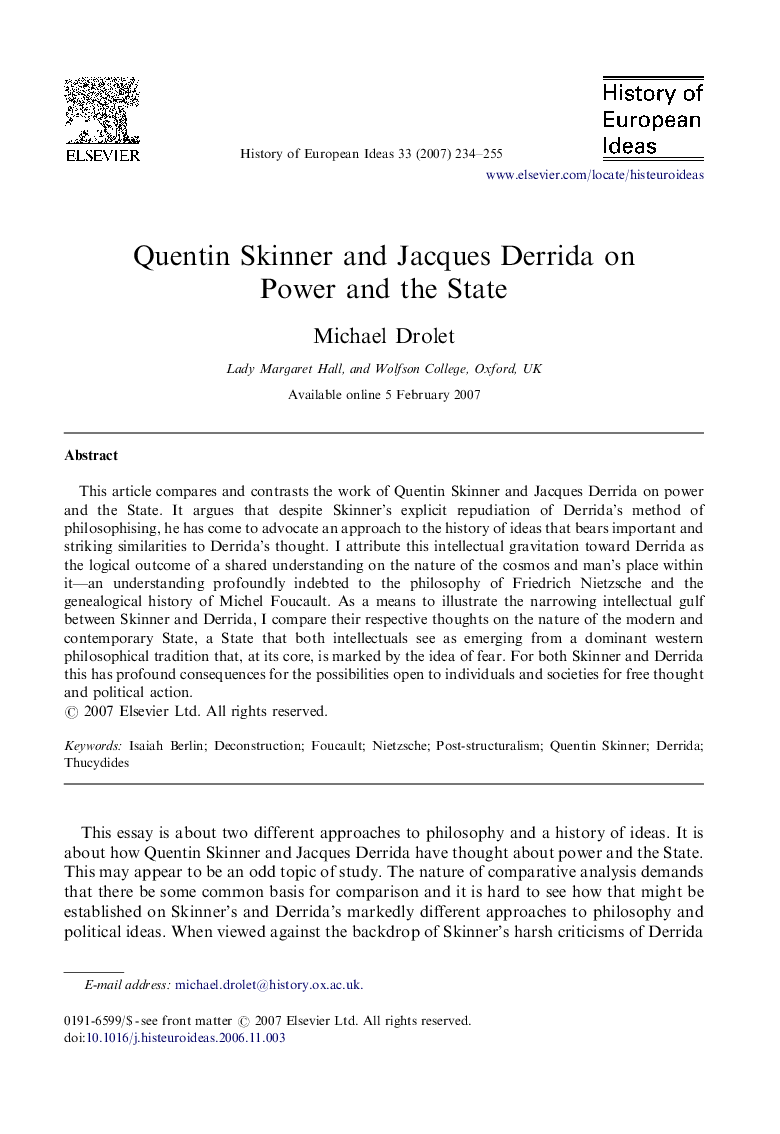| کد مقاله | کد نشریه | سال انتشار | مقاله انگلیسی | نسخه تمام متن |
|---|---|---|---|---|
| 1159202 | 1490078 | 2007 | 22 صفحه PDF | دانلود رایگان |

This article compares and contrasts the work of Quentin Skinner and Jacques Derrida on power and the State. It argues that despite Skinner's explicit repudiation of Derrida's method of philosophising, he has come to advocate an approach to the history of ideas that bears important and striking similarities to Derrida's thought. I attribute this intellectual gravitation toward Derrida as the logical outcome of a shared understanding on the nature of the cosmos and man's place within it—an understanding profoundly indebted to the philosophy of Friedrich Nietzsche and the genealogical history of Michel Foucault. As a means to illustrate the narrowing intellectual gulf between Skinner and Derrida, I compare their respective thoughts on the nature of the modern and contemporary State, a State that both intellectuals see as emerging from a dominant western philosophical tradition that, at its core, is marked by the idea of fear. For both Skinner and Derrida this has profound consequences for the possibilities open to individuals and societies for free thought and political action.
Journal: History of European Ideas - Volume 33, Issue 2, June 2007, Pages 234–255